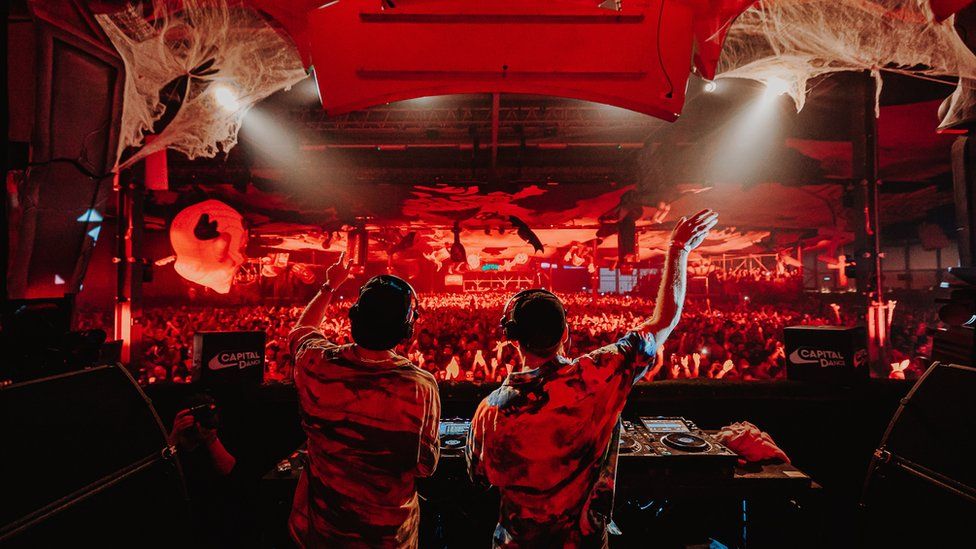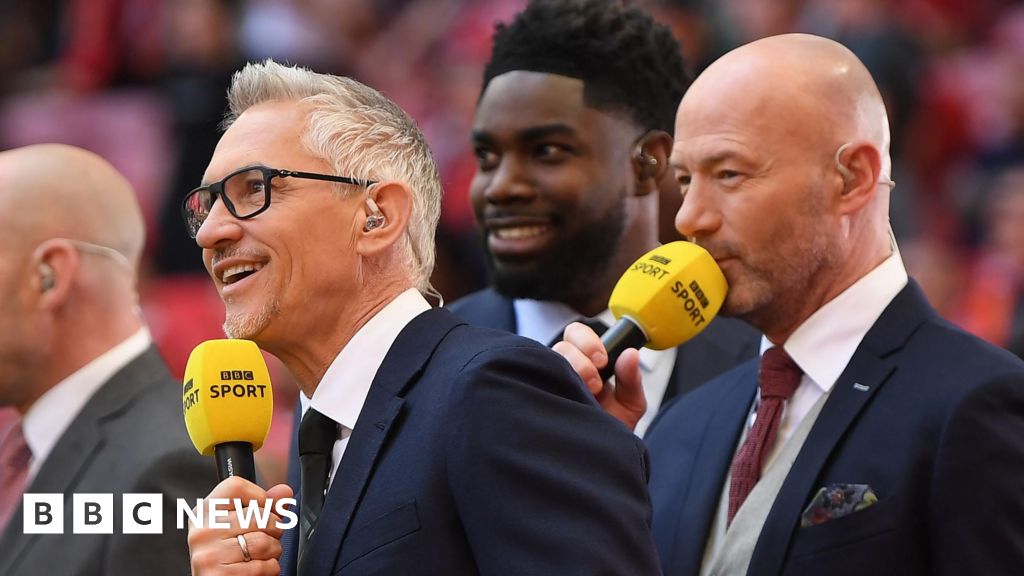ARTICLE AD BOX
 Image source, Elrow
Image source, Elrow
Drumsheds' main room can accommodate up to 9,000 people
By Annabel Rackham
Culture reporter
For many of those who go to London's new 15,000-capacity superclub Drumsheds, it won't be the first time they've stepped inside the huge building.
That's because the Tottenham warehouse used to house Ikea's UK flagship store.
The Swedish furniture-maker closed this branch in 2022, leaving behind a 608,000 sq ft (56,485m sq) space.
Now, its familiar aisles and showrooms have been replaced by panoramic screens, high-quality sound systems and immersive light displays in three rooms that can accommodate all types of dance music.
Image source, Elrow
Image caption,The main clubbing space has taken over the former Ikea's flat pack warehouse
As you walk in for the first time, it's hard to wipe memories of what the space used to look like - the main entrance hall has been created from the space that used to house Ikea's bits and bobs like crockery and bedding.
It's somewhere I've marked a few milestones, including the big trolley dash before moving to university to get kitchen essentials, and again a couple of years ago when I moved into my own place for the very first time.
Others shares the same thoughts - a woman in front of me marvels at how the old café has been turned into a huge bar, serving beers and cocktails rather than meatballs and hot dogs.
For this particular event, the venue has been decked out by Spanish electronic dance company Elrow for Halloween.
The main 9,000-capacity room - which used to be the superstore's flat pack warehouse - is decorated with pumpkins, ghouls and every other spooky stereotype.
Hosting so many people in one space was never going to be without problems. A one-way system put in to help people get in and out of rooms was described to me as "very annoying" and "pretty confusing" by friends Jay and Cameron, who I met in a long, static queue for the smallest, 1,000-capacity room.
It's also been pouring with rain all day and nowhere outside is covered - something Harry describes as "not good" as his chips turn soggy during the downpour.
Image source, Getty Images
Image caption,Ikea's Tottenham store pictured in 2020, before its reinvention
This seems a bit of an oversight considering the club operates a lot of day parties and isn't open in the summer months so it doesn't compete with festival season.
Rach, who is in the drop-off area trying to order a cab, says on first impressions "it definitely brought back some memories of visiting Ikea".
"I loved that each room had a completely different feel," she adds. "It could take a little while to get into each of the rooms because of the layout but crowds moved quickly.
"The sound system was super clear, especially in the smaller rooms and the bars were easily accessible from each room."
Visiting a new clubbing space doesn't happen often in this current climate. UK nightlife has been in decline for 15 years and this week, for the first time since records began 30 years ago, the number of venues serving alcohol dropped below 100,000.
'Massive challenges'
Like with most venues in their opening weeks, there are teething problems. But Drumsheds doesn't feel too big to succeed - having space to move on the dancefloor is welcome in a post-pandemic world where we're all a little less comfortable with being crammed in to tight spaces.
It also fills a gap left by the closure of operator Broadwick Live's previous venue - Printworks - by recreating an industrial, warehouse environment and filling it with the biggest names in dance music.
Much like Printworks, an old printing press that closed earlier this year to make room for a new office development, Drumsheds only has temporary planning permission and could make way for housing or office space in the next few years.
Broadwick co-founder Simeon Aldred told the BBC earlier this year that night-time spaces were under huge threat in urban areas, with his company facing "massive challenges".
"One of the things post-pandemic is that people have been living in silence, local communities have become very quiet places," he said.
"So around licensing and planning, there's challenges and inconsistencies - you've got some councils that are really pro-culture and some that are less so."
Image source, Elrow
Image caption,The venue welcomed DJs such as Solardo, Claptone and Mistajam for its Halloween event.
After the pandemic, there's also a concern that business rates could increase significantly in 2024 if inflation fails to fall. That, coupled with an end to government relief scheme, could mean more closures across the hospitality industry.
Aldred said Broadwick's operating costs across its 26 UK venues "have gone up by millions" and that trying to keep a hospitality company going amid the numerous challenges "has been really, really difficult".
The creation of Drumsheds was facilitated by Amy Lamé, who has been night czar to the mayor of London since 2016.
She tells the BBC it is already "proving a real boost to our city".
"Our world-renowned nightlife is integral to our economic and social recovery and Drumsheds is a great example of how we can repurpose spaces to bring people together," she says.
"I am proud to have supported the venue and will continue to do all I can to champion and support the industry as we build a better London for all."
Whether or not Drumsheds gets the chance to establish itself as a night time destination, for now it provides a haven for those who want to spend their weekends on the dancefloor rather than shopping in a Swedish superstore.

 1 year ago
38
1 year ago
38








 English (US) ·
English (US) ·